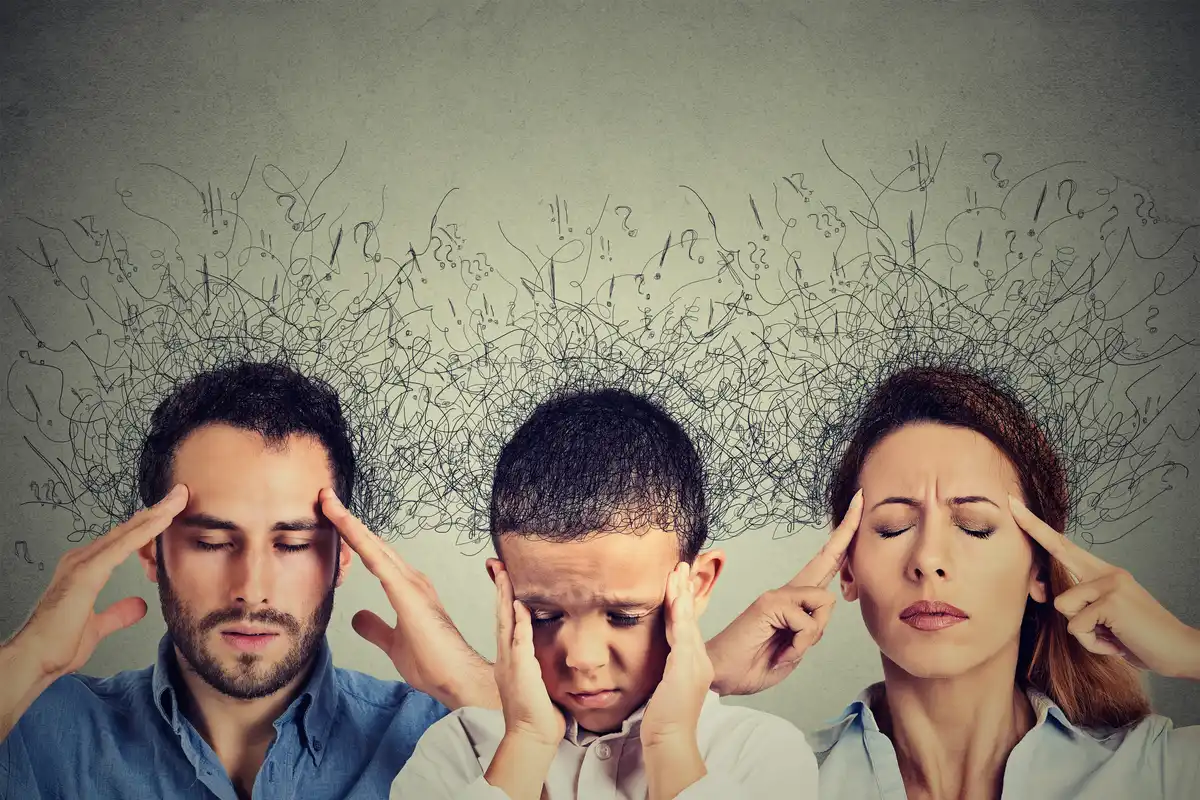Announcement
This article will explore and clarify the misconceptions surrounding ADHD and selfish behavior, providing insights into the realities of ADHD and promoting a deeper understanding and empathy towards individuals with ADHD.
Introduction
Are adults with ADHD selfish? ADHD is a mental health disorder categorized by its hyperactivity and impulsivity. There are common perceptions and stereotypes linked to ADHD and selfish behavior. This article will explore the concept of selfishness, debunk myths relating to ADHD and selfishness, and offer ways to manage impulsive or self-focused behavior for those with ADHD.

Understanding ADHD
Does ADHD make you selfish? Many people who are friends with someone struggling with ADHD or have a close family member with ADHD might find that that individual has difficulty focusing on tasks or conversations, and they prioritize their own needs regularly.
Selfishness is defined as a behavior where you put the self first, but to such a degree that it’s rude and inconsiderate of others. For that reason, many people link ADHD and selfishness together when they see someone, for example, changing the subject of a conversation impulsively to something about them. But selfishness is something done intentionally, on purpose, because an individual cares more about themselves than the other person.
So, what looks like ADHD selfish behavior, like unintentionally overlooking other people’s perspectives or needs, is not a deliberate choice but, rather, a symptom of the condition.
ADHD and Selfish Behavior
So, are ADHD people selfish? or is there a better explanation for ADHD and selfish behavior?
Examining the link between ADHD and perceived selfish behavior
In order to understand ADHD and selfish behavior, or what looks like selfishness, you have to understand that one of the cornerstones of an ADHD diagnosis is a deficit in executive functioning.
Executive functioning directly influences behavior and social interactions. It is responsible for things like:
- Problem-solving
- Planning
- Organization
When someone with ADHD has difficulty with their executive functioning, they will face challenges navigating social circumstances.
For example:
Tony is always struggling to organize his thoughts and his actions. This causes him to monopolize attention and social events or to take over conversations. Many people think that he is self-centered and egotistical, but really, he is trying to control the multiple thoughts that are going on in his head and can’t organize them or plan his conversations in the same structured way that is normally acceptable in Social situations.
How ADHD symptoms might be misinterpreted as selfishness
One of the common symptoms of ADHD is impulsivity. This plays a significant role in what looks like ADHD selfishness.
Those who struggle with ADHD have trouble controlling their impulses, and this means they impulsively make decisions like:
- Interrupting people during conversations
- Acting without any consideration for the consequences
- Participating in behaviors that focus on them
This, at first glance, makes it look like the person with ADHD is prioritizing their immediate needs or wants over the needs or wants of those around them.
Another common symptom is challenges with emotional regulation. People living with ADHD have difficulty managing their emotions and their impulses, especially when it comes to emotional stimuli, and this often looks like ADHD selfish behavior because it can manifest in things like:
- emotional outbursts
- focusing on personal emotional experiences and not the experiences of others
- problems empathizing with others
For example:
Jessica is trying to confide in her friend Alice. Jessica has gone through a very stressful situation at work and is having some trouble with her family. When she starts to open up to Alice, instead of finding support and empathy, Alice, who has ADHD, starts talking over her, offering no sympathy and instead turning the conversation to things that Alice has struggled with recently.
Addressing and Managing Selfish Behavior in ADHD
If you struggle with selfish behavior or you know someone who has ADHD and comes off as very self-centered, there are tips and strategies that can be done to address and manage this behavior.
Strategies for individuals with ADHD to manage impulsive or self-focused behavior
If you live with ADHD, it may be important to consider therapy and medication in managing your ADHD symptoms, especially if you have been told that you struggle with self-centered behavior and selfishness.
Organizational courses and talk therapy can give you an opportunity to better understand emotional regulation and learn more about social cues, and medication can help with impulsivity such that you can overcome the appearance of self-centeredness without deprioritizing yourself.
Consider these tips:
- Focus on learning concrete strategies that help you with social interactions, like active listening, perspective-taking, and turn-taking. These can help you be more aware of the perspectives or the needs of other people so that you don’t come off as self-centered. Such strategies are things that you can work through with the help of a professional therapist, or things that you might be able to practice with a trusted loved one by doing things like role-playing and perspective-taking during communication exercises.
- ADHD therapy and medication can give you direct feedback on the techniques you might be able to use to avoid coming off as selfish. Medication, in particular, can help reduce impulsivity and inattention so that you will find it easier to be more empathetic and to engage in social situations, while cognitive behavioral therapy can give you the strategies you need to improve your emotional regulation and social skills while also minimizing self-centered techniques associated with impulsivity.

Tips for friends, family, and colleagues to understand and support people with ADHD
If you have a friend, family member, or colleague with ADHD, it is important to recognize that the impulsive behavior they might exhibit stems from their inability or difficulty controlling impulses rather than deliberate ADHD selfishness. When you understand that these behaviors are not meant as a slight against you or to discount your feelings, you can approach those around you who live with ADHD with support and empathy.
Similarly, if you have a family member, friend, or colleague with ADHD, you need to consider that it can be difficult for them to understand the emotional needs of other people because they can hardly regulate their own emotions. This can make it seem like they are self-centered and cause you to ask questions like “Are adults with ADHD selfish?” when, in reality, they are not trying to prioritize their emotional state over yours; they just have difficulty with emotional regulation.
Summing Up
Does ADHD make you selfish? Are ADHD people selfish in general, or is it part of the condition? These are all common myths associated with the impulsivity and self-focused behavior symptomatic of ADHD. If you have a friend, family member, or colleague with ADHD, it’s important to understand that what you perceive as ADHD selfish behavior might simply be part of their condition, and there are several things you can do to help support your loved ones successfully. The more education and awareness people have about ADHD, the more understanding and empathy they can offer.